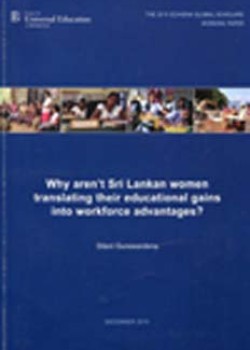
Why Are't Sri Lankan Women Translaating their Educational Gains into Workforce Advantages?
Author : Gunawardene, D.
Year: 2015
Page Numbers: 69
Acc. No: 5009
Class No: 374 GUN- SL
Category: Books & Reports
Subjects: Adult Education
Type of Resource: Monograph
Languages: English
This paper focuses on Sri Lanka, a country with a long record of gender equality in education enrollment and high female completion rates, which has also been characterised by low and stagnant female labor force participation. It remains a puzzle why Sri Lanka has been unable to translate its high girls' education gains into female labor force participation. This paper examines whether clues to the answer lie in gender differences in skill acquisition, which have implications for education policy; differences in the way the labor market values identical skills in men and women, with implications for labor market policy interventions or in the gender division of labor in the household, which has implications for family-friendly and social policies. The paper analyzes the 2012 World Bank STEP Skills Measurement survey, a rich data set that includes self-reported measures of cognitive and non-cognitive skills for all individuals of working, to address these questions



